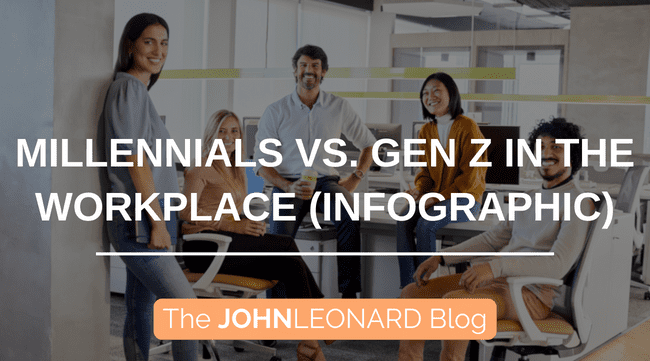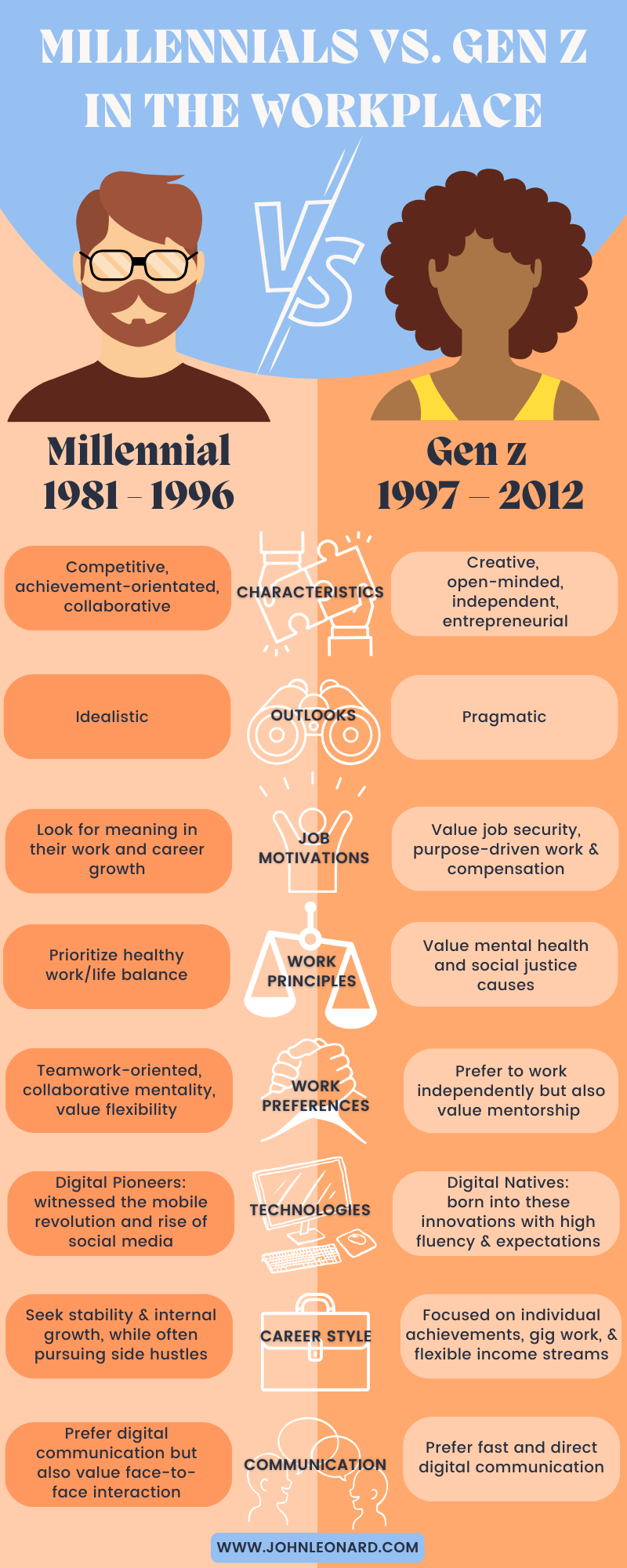
The modern workforce consists of four generations with unique talents, skills, and characteristics. Understanding these differences is crucial for organizations to attract, engage, and retain employees from all generations. As of 2024, Generation Y (Millennials) make up 36% of the workforce, and Generation Z (Gen Z) accounts for another 18%, together representing over half of the US workforce. These generations grew up with changing technology, leading to differences in how they view and approach work. Employers must adapt their leadership to fit the unique preferences and work ethic of each group.
Millennials (1981–1996) tend to be more collaborative, competitive, and idealistic, looking for meaningful work, career growth, and a healthy work-life balance. Gen Z (1997–2012) is creative, independent, and pragmatic, prioritizing job security, mental health, and embracing entrepreneurial ventures. Check out the infographic below to learn more about these generational differences and understand how they can work together successfully.

Infographic sources: htmlhttps://gethppy.com/hr-infographics/millennials-vs-generation-z-success-in-the-workplace, https://www.peoplegoal.com/blog/gen-z-vs-millennials, https://www.business.com/articles/hiring-multigenerational-workforce/, https://wellhub.com/en-us/blog/organizational-development/millennials-and-gen-z-in-the-workplace/, https://franetic.com/mastering-gen-z-workplace-communication/, https://www.forbes.com/sites/ronshevlin/2024/11/30/gig-work-and-side-hustles-are-turning-gen-z-into-bizumers/,https://www.forbes.com/sites/servicenow/2022/11/15/when-it-comes-to-tech-gen-z-workers-have-issues/,https://www.deloitte.com/global/en/issues/work/genz-millennial-survey.htmlhttps://www.deloitte.com/global/en/issues/work/genz-millennial-survey.html
